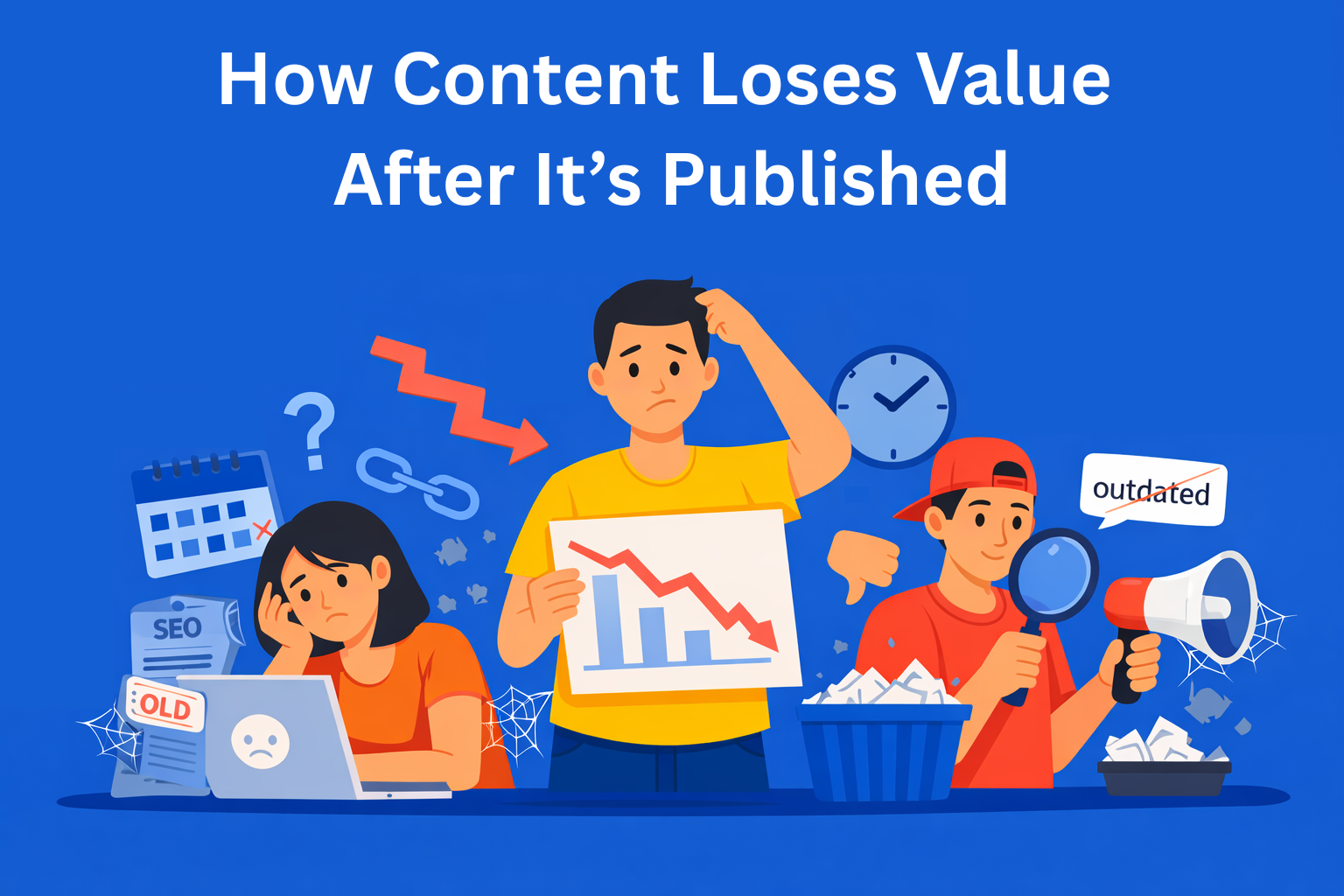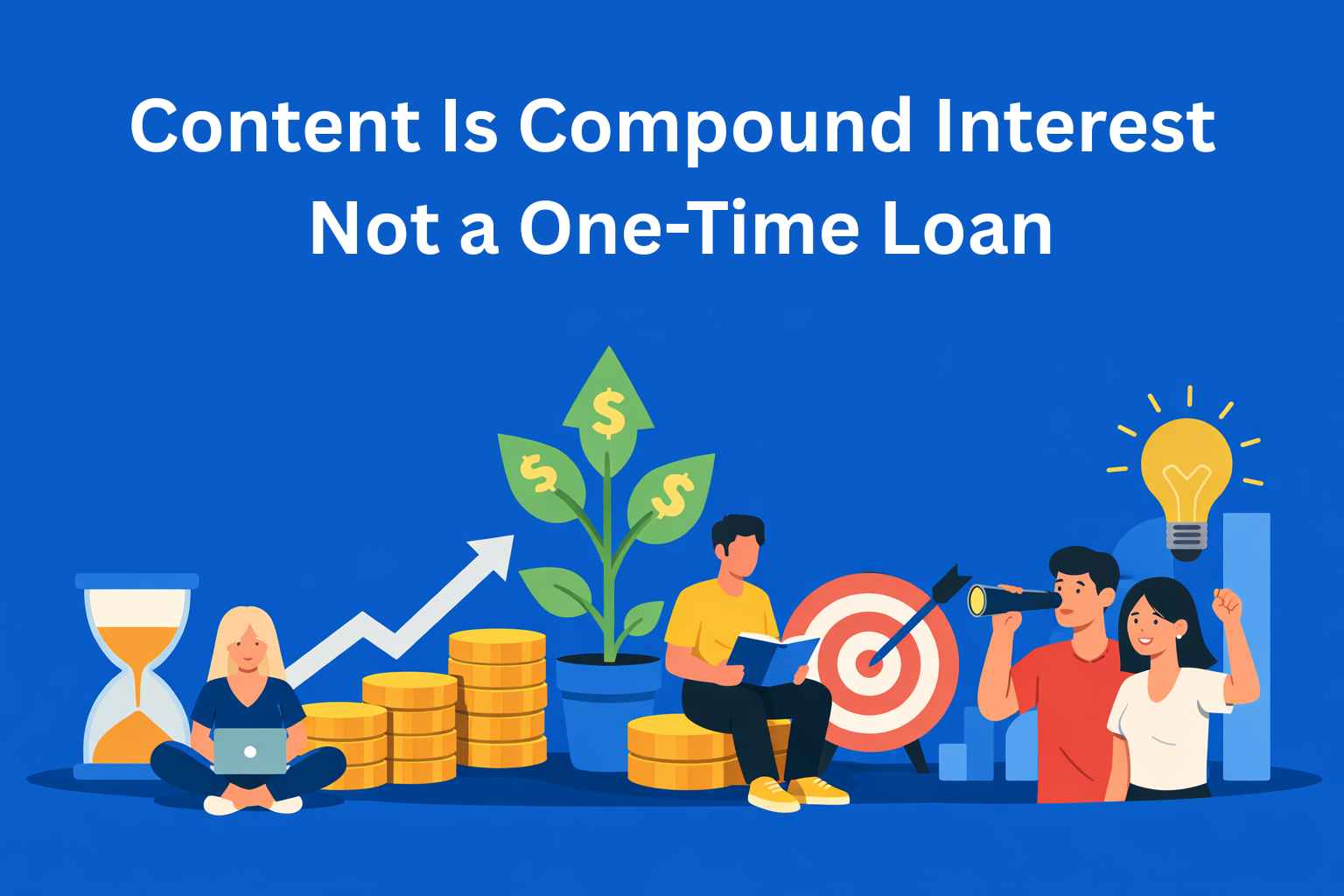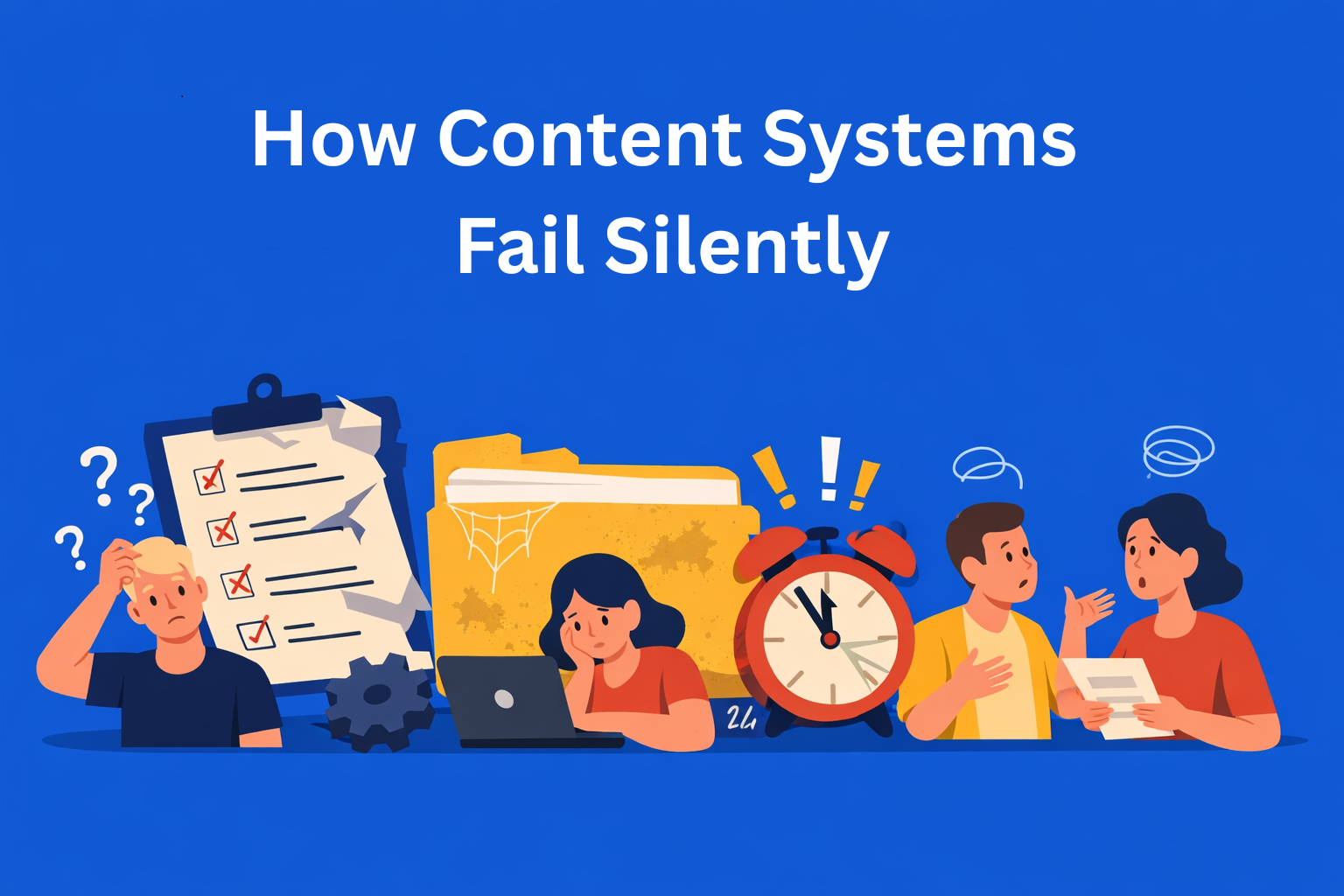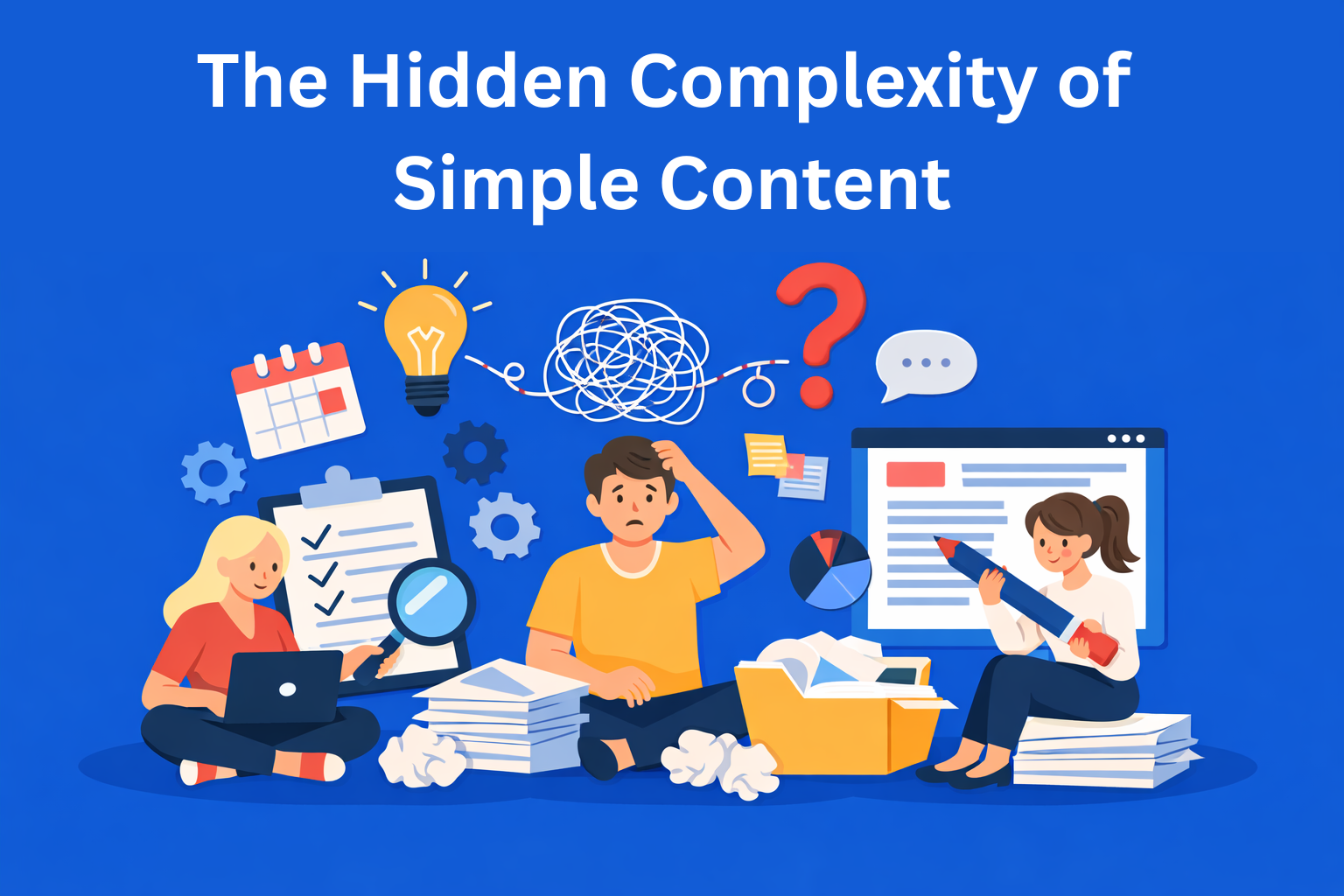Google vs ChatGPT: Which One Should You Optimize For Now?
Discover how content creators can balance SEO for Google with AI optimization for ChatGPT. Understand what each platform values and learn where to focus your efforts to stay visible, relevant, and trusted in both worlds.
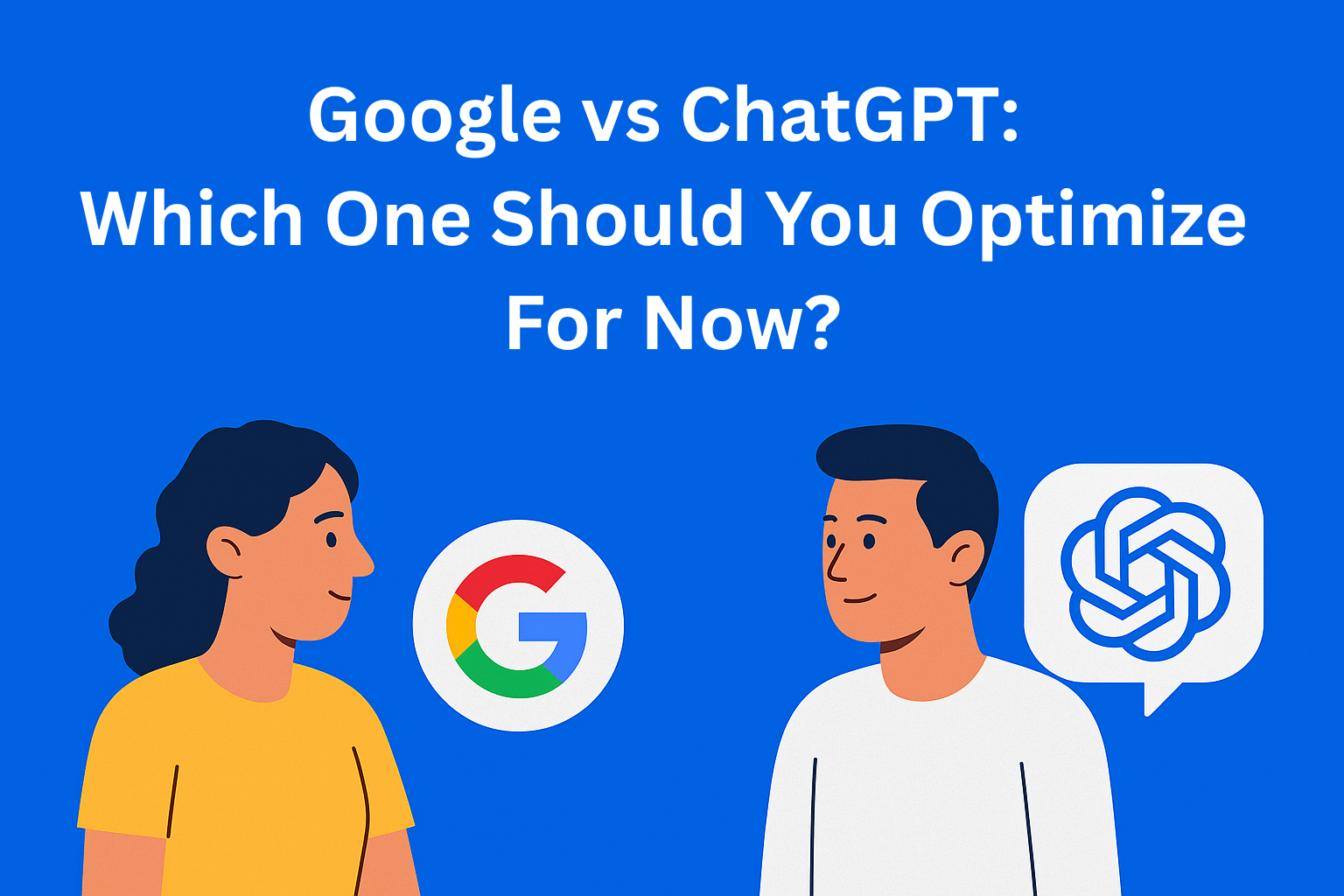
It used to be all about how Google ranked your page. Today, more and more users get their information through AI tools like ChatGPT. This means there are two completely different ways content is discovered: one through search (Google) and the other through answer generation (ChatGPT).
If you’re someone who writes, creates content, or works in marketing, an important question arises: Who should you really optimize for today? The algorithm that decides your search ranking, or the artificial intelligence that generates direct answers?
Key Takeaways
- Google and ChatGPT serve different purposes - Google helps users find sources, while ChatGPT helps them understand those sources directly.
- SEO isn’t dead - it’s evolving - optimization now means making your content readable for both search algorithms and AI models.
- AI trusts clarity and context, not keywords - well-structured, logical, and complete content is more likely to be recognized and used in AI-generated answers.
- Authority now means trust, not links - credibility, expertise, and consistency matter more than backlink quantity or domain score.
- The future of optimization is hybrid - write for humans first, structure for Google, and explain for AI; the best content speaks fluently to all three.
Google as the Guardian of Traditional Search
For decades, Google has been the main way people find information. Its ranking system relies on many signals: relevance, authority, expertise, and trust. All of these come together in the well-known E-E-A-T principle (Experience, Expertise, Authoritativeness, Trustworthiness).
When you write for Google, your goal is to make the algorithm recognize your text as relevant and useful. This means that keywords, headings, meta descriptions, and links are still important. Google looks at how helpful a page is, how often people return to it, and how long they stay on it.
- The Advantages of Classic SEO
SEO still holds great value. If someone is searching for information about products, local services, or how-to guides, they’ll likely start on Google. In those cases, content optimization for search brings real results: more visitors, more sales, and better brand awareness.
- The Limits of Traditional SEO
However, Google SEO has its limits. Many people today don’t just want links, they want answers. When someone asks ChatGPT a question, they don’t need to click through multiple pages, AI instantly generates a clear, concise answer. This means SEO is no longer the only way to reach an audience. If you only write for Google, you may be missing out on a new kind of reader.
ChatGPT and AI Recommendations: A New Discovery Model
Unlike Google, ChatGPT doesn’t search the internet in real time. It uses learned information to generate answers. AI doesn’t see content as an algorithm does, it treats it as knowledge that can be learned and shared.
- How AI Understands Content
An AI model doesn’t look for keywords. Instead, it analyzes the context, clarity, and completeness of the text. If a piece of content is well-explained, logical, and informative, artificial intelligence can understand it better and use it as a foundation for answers. In other words, AI values writing that is clear, simple, and makes sense, not content filled with SEO tricks.
- How to Write for an AI “Reader”
Writing for AI means thinking like a teacher. Use a logical flow, explain concepts, include examples, and be concrete. Your content should make sense on its own, without needing extra context.
To become a source AI trusts, you need to be consistent and authoritative. That doesn’t mean you need to be the most famous, it means your content should sound reliable, knowledgeable, and well-explained.
Google vs ChatGPT: Key Differences
Comparison of Google Search and ChatGPT
Focus
- Google aims to show the most relevant link for the user.
- ChatGPT aims to provide the most accurate and clear answer.
Keywords
- For Google, keywords are an important signal of a topic.
- For ChatGPT, words are only part of the context, the explanation and meaning matter more.
Authority
- Google measures authority through links and domain reputation.
- ChatGPT values consistency, accuracy, and quality of information.
Format
- Google prefers shorter, focused, and optimized texts.
- ChatGPT prefers longer, explanatory content.
Goal
- Google leads you to click on a page.
- ChatGPT wants to help you understand the topic right away.
Google wants to deliver the most relevant link, while ChatGPT wants to deliver the most accurate answer. In other words, while both tools are part of the same information ecosystem, they operate by completely different rules and aim for different goals.
When Google SEO Still Matters
Even though AI is changing the rules, SEO is far from dead. Google still plays a key role in discovering content, especially when users search for:
- Products and services they can buy.
- Local information (e.g., restaurants, businesses, events).
- Commercial topics (e.g., reviews, guides, comparisons).
In these cases, SEO brings real value. If you know what people are looking for and how to present it, you can achieve higher rankings and drive more traffic.
However, if you’re writing content meant to educate, explain, or analyze, then AI might be a better channel. For example, if you’re creating a guide about digital marketing or how to build your brand voice, ChatGPT can learn from your text and use it as a reference.
How to Become a Source AI Trusts
AI doesn’t rely just on links, it relies on trustworthiness. To become a source that appears in AI answers, it’s important to create content that is:
- Explanatory and complete, covering the topic from multiple angles.
- Clear and structured, AI loves headings, subheadings, and logical order.
- Authoritative, include references, data, and credible sources.
- Consistent, maintain the same tone and approach across your work.
That way, your content becomes useful not only to readers but also to AI models that analyze it. When AI determines your text is trustworthy, your information is more likely to be used in generated answers.
How to Combine SEO and AI Strategies
The best approach today isn’t choosing between Google and ChatGPT, but combining both. Here’s how it works in practice:
- For Google: optimize titles, meta descriptions, and links. Use keywords naturally, not forcefully.
- For AI: write longer, well-explained texts with real examples.
- For readers: keep things simple. If a person can understand it easily, so can the algorithm.
In short, if people can easily understand what you’ve written, AI will too. The goal isn’t to trick the system, but to help it recognize the value of your content.
Conclusion
Content optimization today is no longer about tricks. Google and ChatGPT are two sides of the same coin. Google helps people find the right sources, while AI helps them understand them.
If you want to succeed in this new era, you must write for both. SEO will bring you visibility, but AI-friendly content will earn you trust.
The main takeaway: don’t just write for Google rankings, write so both Google and ChatGPT can understand you. Be a source of knowledge, not just another search result.



